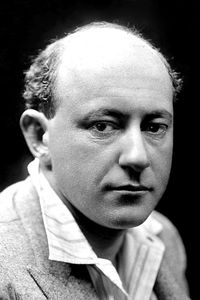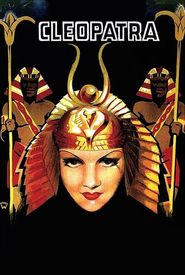Cecil B. DeMille was born into a family of playwrights, with his parents Henry C. DeMille and Beatrice DeMille being renowned playwrights. Tragedy struck when DeMille was just 12 years old, as his father passed away, leaving his mother to support the family by opening a school for girls and a theatrical company. Despite his young age, DeMille's mother continued to nurture his interest in the performing arts, and he soon followed his older brother William C. de Mille to the New York Academy of Dramatic Arts, making his stage debut in 1900.
For the next 12 years, DeMille worked as an actor-manager for his mother's theatrical company, honing his craft and gaining valuable experience in the industry. In 1913, he joined forces with Jesse L. Lasky and Samuel Goldwyn to form the Lasky Film Company, which would later evolve into Paramount Pictures. The following year, the trio ventured to California and produced the groundbreaking six-reeler, The Squaw Man (1914),a film of historical significance as the first feature-length film produced in Hollywood.
DeMille's innovative approach to filmmaking involved emphasizing production values rather than relying on established stars. He instead focused on developing talent, and his efforts paid off with the discovery of stars such as Gloria Swanson. Throughout his illustrious career, DeMille produced and directed an impressive 70 films, many of which were romantic sexual comedies catering to the perceived interests of the American audience.
However, DeMille's most notable works were his biblical and religious epics, including Joan the Woman (1916),The Ten Commandments (1923),The King of Kings (1927),The Sign of the Cross (1932),The Crusades (1935),Samson and Delilah (1949),and The Ten Commandments (1956). These films cemented his status as a master of the craft and solidified his position as the symbol of Hollywood.
In addition to his film work, DeMille also made a name for himself in radio, hosting and directing the hour-long "Lux Radio Theatre" from 1936 to 1945. This popular program brought the actors and stories of many movies to the airwaves, further establishing DeMille as a household name. He even made a memorable cameo appearance in the classic Sunset Boulevard (1950),starring alongside his former star Gloria Swanson as the fictional disturbed former silent film actress Norma Desmond.
DeMille's niece, Agnes de Mille, was a renowned choreographer who worked on both the original Broadway production and film version of Oklahoma! (1955). Cecil B. DeMille's remarkable career, spanning over four decades, left an indelible mark on the film industry, and his legacy continues to inspire new generations of filmmakers and audiences alike.






























































